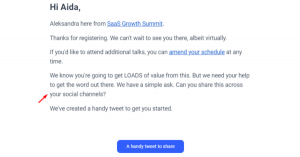by Aaron Baar, Staff Writer, August 16, 2016
Given its wide-ranging purpose (from initial research to late-stage price comparison) and cross-platform presence leading to attribution challenges, it should be no surprise that many marketers — particularly small business — are having difficulty understanding just how, or even if, their search marketing efforts are working.
Two studies this summer demonstrated how difficult taking ROI on search marketing can be. In June, B2B research firm Clutch, and R2integrated (R2i), a digital agency, released a survey that suggested 90% of enterprise businesses were undervaluing search marketing as practice. The businesses’ top concern — cited by 18% of the respondents — was about how they could prove its ROI.
In a similar vein, digital marketing agency RevLocal found that while 75% of local businesses invest in local search marketing efforts, fewer than half of them (44%) track the ROI of those efforts. According to the study, these small businesses know they need to be present in consumer searches — 60% were investing in SEO and social media; 36% were investing in review marketing — but many simply don’t have the knowledge or skills to follow through on their efforts.
“A lot of [small-business] companies haven’t thought about what marketing is,” RevLocal president Aaron Boggs tells Search Insider. “They’re not thinking about ‘purchase path.’”
That’s true. Most small business owners are service providers first, and marketers second (or even further down the line). Further complicating this is the role that search plays along that purchase path. It can appear anywhere — at the beginning, middle or end of a purchase decision, and the information required from different searches at different times varies.
“Search marketing is an evolving, ever-changing [practice],” Boggs says. “It’s all over the funnel, and the last thing you want to do is guess. You want to take the ‘I think’ out and replace it with ‘I know.’”
Some of the process for removing the guesswork is surprisingly simple, Boggs says. First, make sure the business’ basic information is showing up correctly in search results. “Are you showing up in the local sections of Google search?” Boggs says. “Over 85% of businesses we work with have incorrect business numbers and addresses associated with them.”
Other practices are simply good business: Listening to customers when they call, responding to their e-mails, asking how they heard about your business, and tracking that information over time, to get a better picture of what customers are looking for, when they’re looking for it, and determining the best times and methods to approach them with offers.
And finally, don’t be afraid to ask for reviews, particularly in cases of high customer satisfaction. Businesses with more reviews are more likely to get more clicks and more responses. And the fresher the reviews, in the eyes of potential customers, the better.
“People want to do business with those that are relevant and recent,” Boggs says.
MediaPost.com: Search Marketing Daily
(23)




